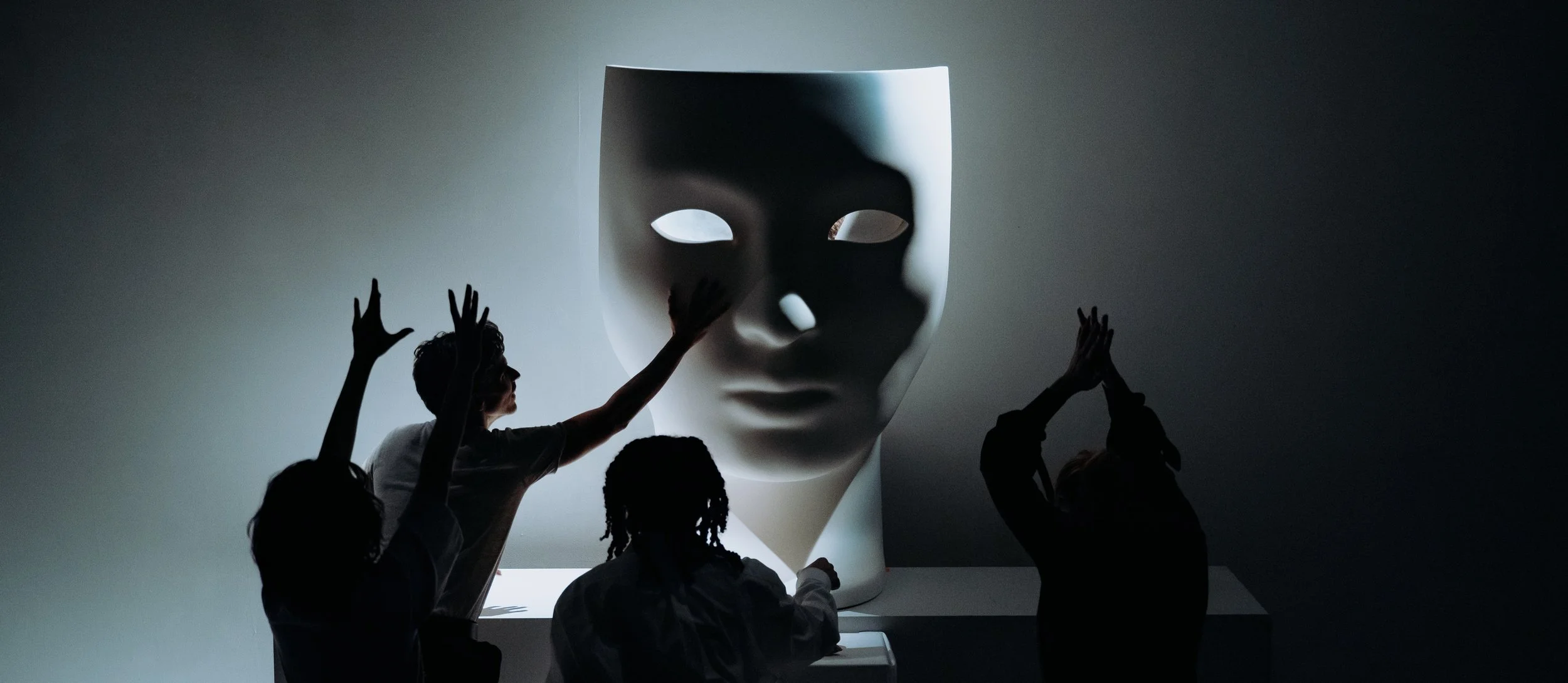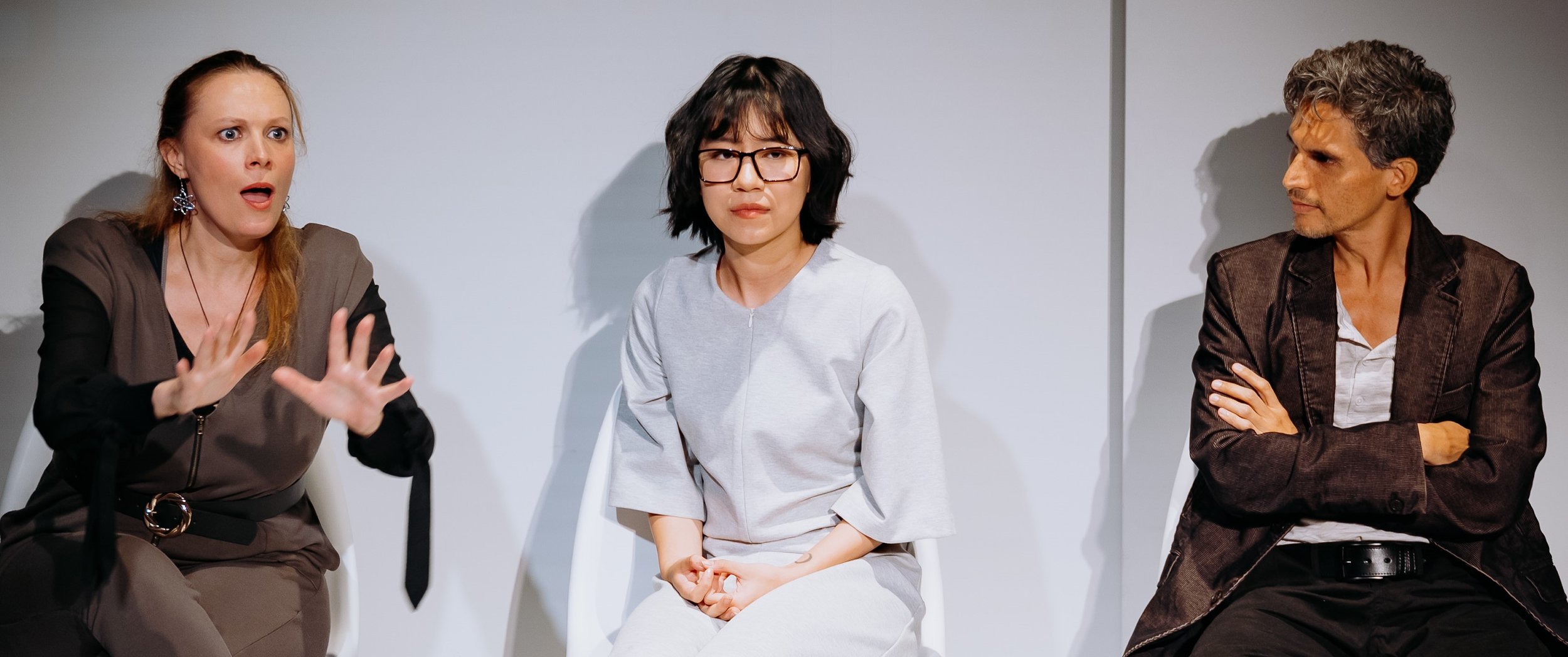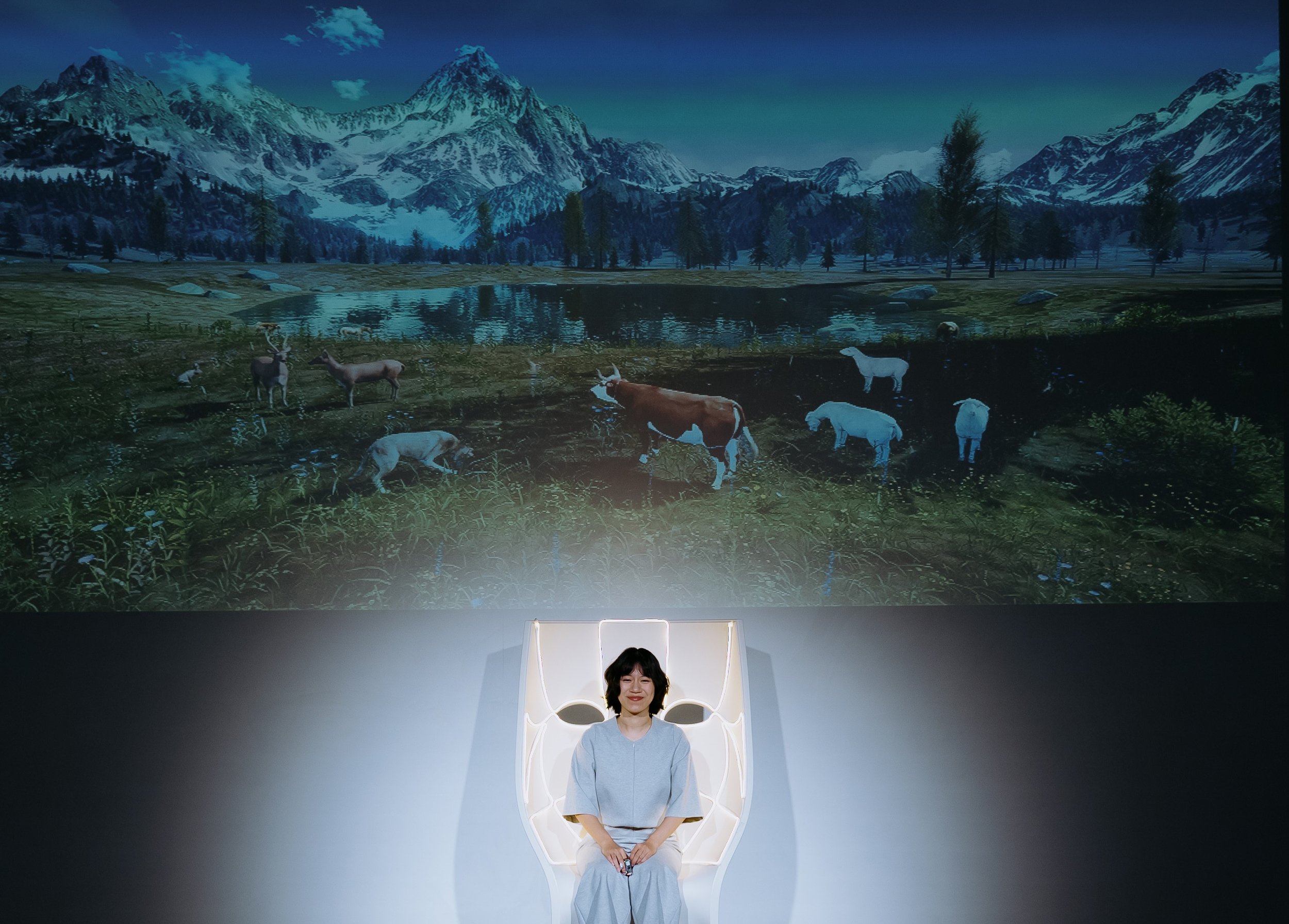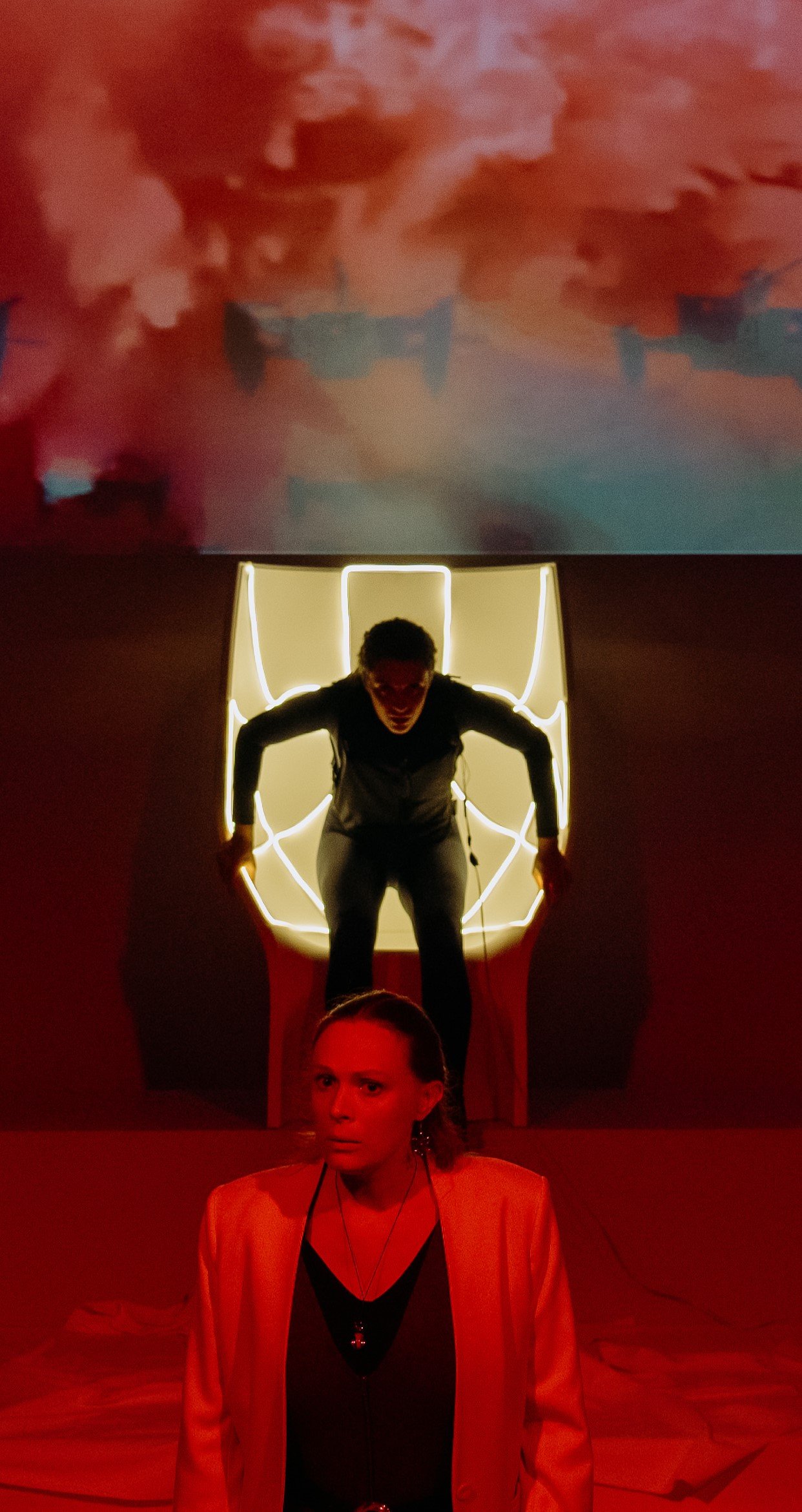From left: Annemarie Hagenaars, Thammie Quach and Juan Cardenas play real-life scientists participating in a panel about artificial intelligence (AI) in Bioadapted.
Bioadapted, a new theater piece created and directed by Tjaša Ferme, and written by Ferme, James Yu and Alexis Roblan, is a hybrid play about artificial intelligence (AI) drawn from sources as disparate as a 2020 article in Britain’s Guardian newspaper that was written by ChatGPT (a kind of AI); transcripts of panels of scientists discussing the subject; and scientists interacting with AI. Turning transcripts into drama has been around a long while—from Emily Mann’s Execution of Justice and Moisés Kaufman’s Gross Indecency: The Three Trials of Oscar Wilde to the recent Is This a Room, which took dialogue verbatim from FBI interviews with Reality Winner.
Quach as Netta, who undergoes a biomedia test. AI changes the picture behind her according to her answers. Photographs by Dinara Khairova.
Bioadapted takes on a subject that has caught fire in the last six months. The differently sourced scenes—with impressively sterile sets by Oliver Zeller and Emily Greco, stunning lighting by Nicole E. Lang, and superb projections by Jeremy Bennet, including medical monitors and three-dimensional, green schemata familiar from movies like The Matrix, as well as supertitles to note the sources for the scenes—are superb, but a play drawn from transcripts needs a central character. The variety of scientists and speakers, all incarnations of real people, is too diffuse to maintain one’s focus.
Even one scene of actual interaction that takes place in a break room falls short. It features a woman, Netta, who is curious why coworker Alicia is laughing heartily at something on her cellphone. It quickly veers from the personal into technology and philosophy:
Netta: Why does that. Make you laugh? …
Alicia: I don’t know, it’s funny. Are you used to, like...?
Netta: What? Am I used to what?...
Alicia: Sorry, I’m just guessing you’re probably used to, like, getting everything they show you.
Netta: You’re not used to understanding everything you watch?
Alicia: I mostly just watch YouTube. I don’t even have cable.
Netta: I don’t have “cable” either?
Alicia: No, but I’m sure you have all those bioadapted—
Netta: I assumed that was adapted—that’s why I didn’t get it, / it’s for you—
Alicia: I don’t do that.
Netta: I thought YouTube had special filters now—
Alicia: I only watch analogue narrative, personally. Keeps the brain active. I feel.
Netta: There’s no actual evidence of that. That it’s better for your brain. Unadapted narrative is just—
Alicia: Communal.
Technology enhances a scene with Stephanie White (front) and Melody Munitz in Bioadapted.
Conversely, the most intriguing moments come from ordinary people and everyday language. In one scene a woman in a headscarf is stopped by an officious airport security officer and interrogated, clearly for no other reason than that AI has identified her as a threat. In another scene, an actress is auditioning in front of AI for a role—or thinks she is—and suddenly she finds that she has not only scored the job but her check is in the mail! The success of these scenes derives from the humanity of the participants and some unexpected levity.
Nevertheless, the writing strives mightily to educate. Yu, whose own work forms the basis for a few scenes, draws on an excerpt of his own “Singular: Possible Futures of the Singularity,” a role-playing exercise in which he conversed with ChatGPT, for a dense, dry passage:
When the singularity happens, computers will shrink until we forget they ever existed. We toss our cell phones in favor of watches and pea-sized earbuds, then thin contact lenses that project our desires directly into our retinas. Eventually, chips smaller than a grain of sand can push as many teraflops as a modern Mac Pro.
AI is certainly a hot-button topic, and kudos to the creators for trying to make sense of it (Transforma Theatre’s mission is to mix art and science), but there are few touchstones for the uninitiated in this daunting topic. One scene, though, might have come from decades-old science fiction. In it, Lina talks to her husband Gus (who, by the way, is pregnant):
Lina: A few nights ago I dreamt about a murder. …
Gus: Do you know who the murderer is?
Lina: No, my dream self does but is too afraid to say anything, who do you report the dream crimes to?
Gus: The dream police?
The “play” ends with a bout of interactivity, as several performers (they are Arianne Banda, Juan Cardenas, Annemarie Hagenaars, Melody Munitz, Thammie Quach, and Stephanie White) ask for questions from the audience for GPT-3 to answer. The solicitation seems akin to a pop quiz on whether the voluminous information imparted has been absorbed. But ambitious though it is, Bioadapted leaves one feeling less might have been more.
Transforma Theatre’s Bioadapted runs through Sept. 24 at Culture Lab LIC (5-25 46th Ave. in Long Island City). Evening performances are at 7 p.m. Thursday through Sunday (except for Sept. 21 and 22, when they are at 9:30 p.m.); matinees are at 3 p.m. Saturday and Sunday. For tickets and more information, visit transformatheatre.com.
Playwrights: Alexis Roblan, James Yu andTjaša Ferme
Direction: Tjaša Ferme
Sets: Oliver Zeller and Emily Greco
Costumes: Alex C. Webster
Lighting: Nicole E. Lang
Sound: Liam Bellman-Sharpe





